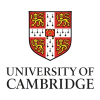Snabbfakta
-
- Cambridge
Ansök senast: 2024-12-02
AZ Funded Non Clinical PhD Studentship (Fixed Term) in Ion channels and excitability in neuroendocrine cancer
Applications are invited for a 4-year PhD studentship based in the Department of Physiology, Development and Neuroscience (PDN), University of Cambridge, and the new AstraZeneca Discovery Centre at Cambridge. The student will be working on a collaborative project jointly supervised by Prof Hugh Robinson, in the Department of PDN, and Dr. Philipe Mendonça at AstraZeneca and will have the opportunity to work across the two sites. The project is in the emerging field of cancer neuroscience, which is generating great interest and excitement in both academia and industry.
Project abstract
Neuroendocrine (NE) cancers include some of the most aggressively invasive and lethal primary cancers, for example, small-cell lung cancer, neuroblastoma and pancreatic neuroendocrine tumours, as well as metastatic resistance stages of epithelial cancers such as breast and prostate. Neuroendocrine cancer cells, like neurons, are electrically excitable, generating action potentials, which trigger vesicular secretion. The aim of this project is to understand the mechanisms of this electrical signalling, and how ion channels might be targeted to inhibit the metabolism, proliferation and invasion of these types of cancer cells. By combining state-of-the-art electrophysiological and imaging techniques at AZ and the University of Cambridge, we propose to dissect the roles of different ion channels in controlling the electrical properties of NE cancer cells. We will then use the unique electrophysiological fingerprint of these cells to understand the roles that ion channels may play in oncogenesis and tumour invasiveness. The findings will help identify new treatment strategies for these aggressive NE tumours.
Candidate
We are looking for a highly motivated and enthusiastic individual capable of thinking and working independently. Applicants should have or shortly expect to obtain a first or upper second-class degree from a UK university, or an equivalent standard from an overseas university, in a relevant subject such as physiology, biochemistry, biophysics or pharmacology. These positions are open to UK citizens or overseas students who meet the UK residency requirements (home fees) or are able to augment the funds to cover the extra costs associated with international student fees through scholarships or funding schemes. Students will not be allowed to supplement fees via self funding.
Full details of the University's entrance requirements and scholarships are specified at the following link: .
Funding
Full funding covering Maintenance fees at £21,500 per annum and the University Composition Fee is provided for the studentship, with effect from 1 October 2025.
Application Process
Applications should include:
Deadline
Completed applications (with ALL supporting documentation and references) to be submitted via the portal by 23:59pm (midnight) UK time on Mon 11th November 2024 at the latest. Interviews will be scheduled for the end of November.
Student support and training
Graduate students at Cambridge have access to a wide range of training opportunities and benefit from close supervision provided by a primary and secondary PhD supervisor as well as a personal mentor. During the PhD, there is no taught or examined coursework, but students are encouraged to attend the wide variety of lectures and training courses available to them across the Institute and wider University. This includes a centrally-run Statistics course and the University Core Skills Training Programme, which includes sessions on Time Management, Presentation and Performance and Scientific Writing. Students will be members of the University's Postgraduate School of Life Sciences (PSLS) who offer a wide variety of core skills and professional development training (see the Researcher Development page on the PSLS website for more information). In addition, students can take advantage of training courses and seminars in therapeutic sciences offered by the Cambridge Academy of Therapeutic Sciences. Students are expected to attend a variety of relevant internal and external seminars held within the Dept of Physiology, Development and Neuroscience. Students will also be encouraged to attend and present at the annual AstraZeneca Students' Symposium.
Diversity and Inclusion
The University actively supports equality, diversity and inclusion and encourages applications from all sections of society. We place major emphasis on the importance of teamwork and an enjoyable work environment as a foundation for performing internationally leading research. This will allow the student to acquire cutting edge research methodologies in a supportive environment, where they can focus on making the best possible scientific progress.
The University has a responsibility to ensure that all employees are eligible to live and work in the UK.










